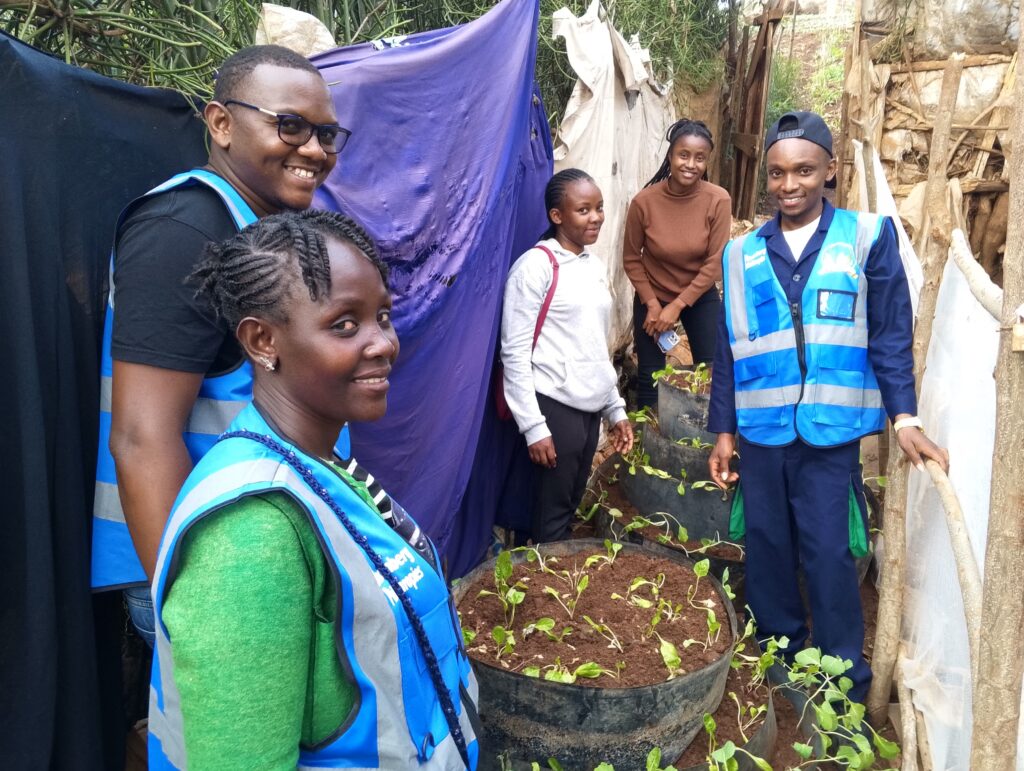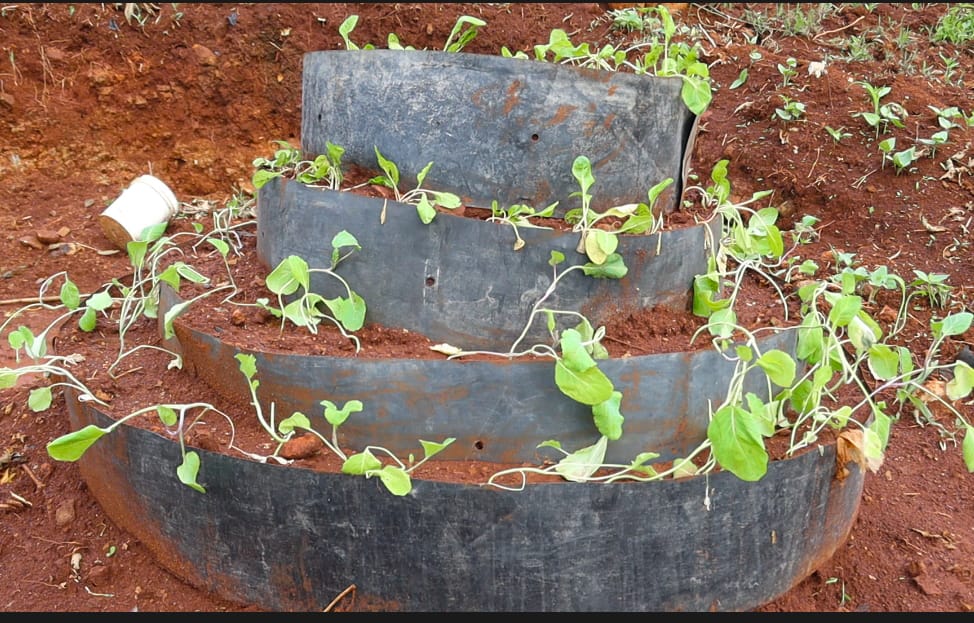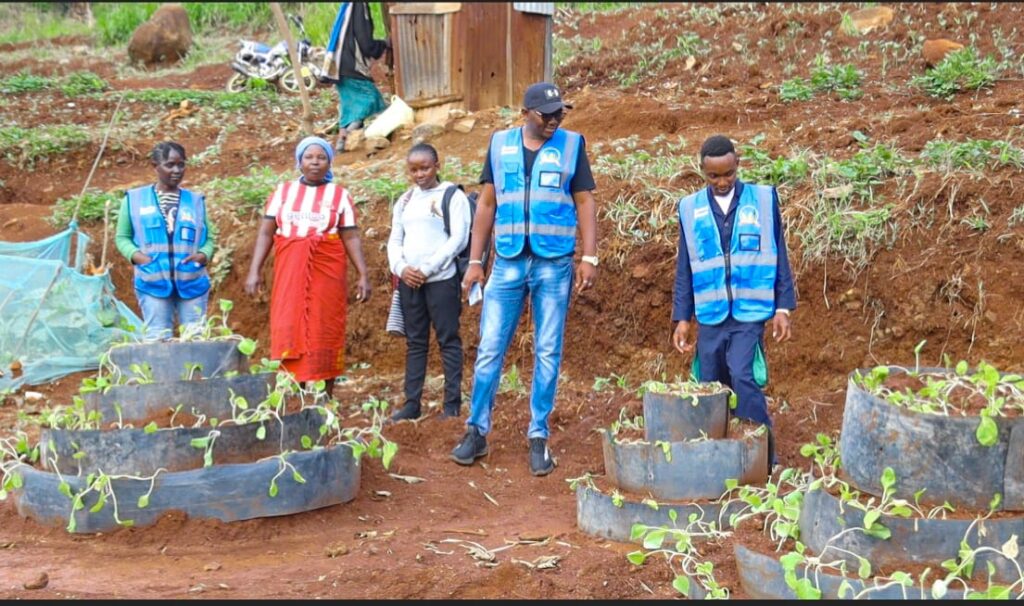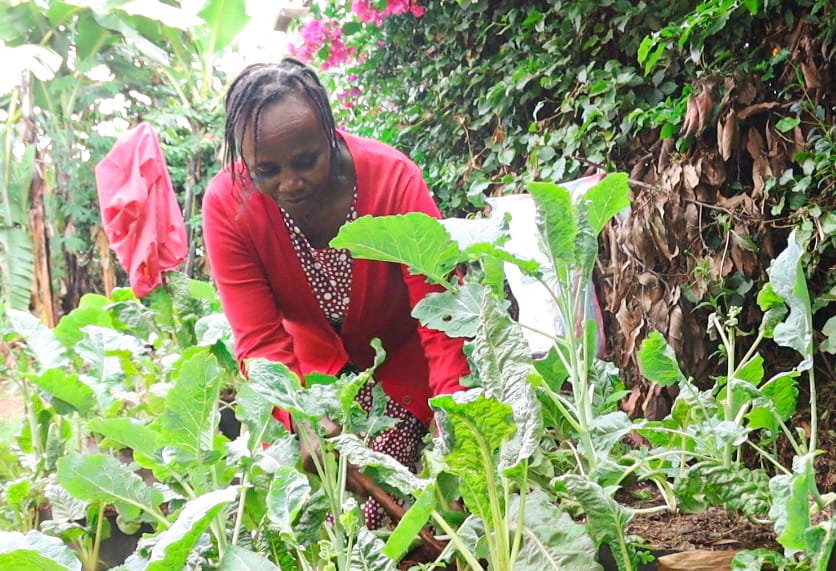BY RITA MUTHONI
In the heart of Embu’s densely populated slums, a determined group of young people is leading a transformative movement—turning limited urban spaces into thriving kitchen gardens.
Armed with innovation and a passion for sustainability, these youths from Kirimari Ward, Manyatta Constituency, empower vulnerable families to fight food insecurity while championing climate resilience.
Under the banner of I-Care Kenya, a youth-led community-based organization focused on health, environmental conservation, and economic empowerment, these changemakers, aged between 18 and 34, are bringing sustainable urban farming solutions to residents in informal settlements.
A Lifeline for Slum Families
Thanks to funding from the Youth Climate Action Fund, sponsored by Bloomberg Philanthropies, I-Care Kenya has established kitchen gardens—including vertical and container gardening—for 13 families in Grogon and Dallas slums.
The initiative offers relief to struggling households amid rising living costs and erratic food supply.
Dallas, one of Embu’s most overcrowded settlements, is home to over 18,000 residents living in cramped conditions with limited access to fresh food.
Recognizing this challenge, I-Care Kenya introduced space-efficient gardening techniques, allowing families to grow vegetables like spinach, kale, tomatoes, and onions in their backyards.

“When I saw the county government’s call for youth climate action funding, I proposed kitchen gardens to help slum families become self-reliant,” said Nickllivers Kariuki, 29, the founder of I-Care Kenya.
He adds, “This initiative is not just about food; it’s a commitment to climate action.”
By reducing grocery expenses and enabling families to sell surplus produce, the project has created an economic ripple effect, making nutritious food both accessible and affordable.
Raising Climate Awareness
Dressed in bright reflector jackets labeled “Embu County Youth Climate Action,” the team is also leading climate education campaigns.
Through training on soil health, composting, water conservation, and pest management, they equip families with essential skills to sustain and expand their gardens.
“Our project promotes organic fertilizers and reduced chemical inputs, ensuring food safety and lowering health risks such as cancer and diet-related diseases,” Kariuki explains.
Beyond improving food security, the initiative fosters environmental responsibility. The materials used to construct the garden structures are eco-friendly, reinforcing the group’s commitment to sustainability.
Impact on Beneficiaries

For Immaculate Wanjiru, fondly known as “Mama Angel,” the project has been life-changing.
Wanjiru transformed a small patch of land outside her home into a flourishing vegetable garden with the help of I-Care Kenya.
“During dry seasons, food prices skyrocket, making it hard to afford meals. With this initiative, we can grow our vegetables despite the limited space,” she says.
She notes, “Many slum residents buy vegetables grown with excessive chemicals. Now, we can grow our organic crops, ensuring a healthier diet for our children.”
Nancy Gathuru, another beneficiary, emphasized the environmental benefits.
“Urban gardening is crucial for climate mitigation. Most urban dwellers can’t plant trees, but small-scale gardening allows us to green our towns and help regulate temperatures,” she says.
Challenges and Calls for Support
Despite their success, the young climate warriors face obstacles—including skepticism from some community members and financial limitations.
“Some residents initially mistook us for a political movement and were hesitant to engage,” said Ibrahim Gulamali, 25, a member adding that there is a need for more public awareness on climate change.”

Financial constraints have also hindered the project’s expansion.
“We aimed to reach more families, but with limited resources, we could only install gardens for 13 households,” Kariuki reveals.
The group appeals to the government and development partners to support youth-led climate initiatives.
“Many young people have innovative solutions, but implementation is costly. With adequate funding, we could introduce advanced techniques like hydroponics, but the materials are expensive,” Kariuki says.
Looking Ahead
With the success of the pilot project, I-Care Kenya hopes to expand its reach by offering affordable installation services to more urban households.
Send us your story via
news@arisemediagroup.co.ke or WhatsApp 0750456085
Book Advert-use above contacts
 816
816


